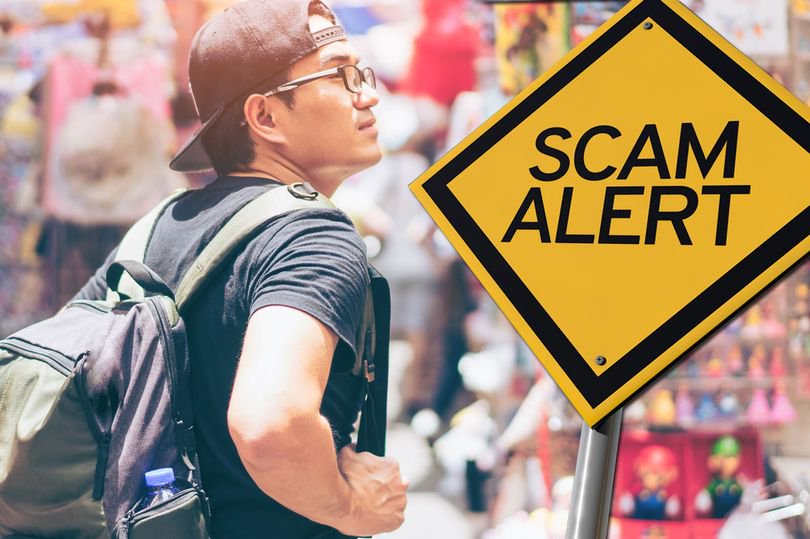The Study Abroad Scam Wave: How Agents Trap Students With Fake Offers
 The Student Loan Trap: Mistakes That Could Destroy Your Financial Future 1
The Student Loan Trap: Mistakes That Could Destroy Your Financial Future 1
Heading abroad to study is thrilling — new country, new culture, new opportunities. But for many international students, this dream comes wrapped in a hidden danger. The study abroad scam wave is real. Over recent years, unregulated agents and fake promises have trapped students with misleading offers, excessive fees, and broken dreams. Understanding how agents trap students with fake offers is essential if you want to protect your future rather than gamble with it. In this essay-style read, we’ll unpack how the scam works, expose the key mistakes students make, present a comparison of safe vs risky scenarios, and conclude with practical steps you can take to stay safe.
Why the “Study Abroad Scam Wave” Is Spreading
Scams in the study abroad industry aren’t isolated incidences, they’re part of a growing trend. Agents often promise:
- Guaranteed admission at prestigious universities
- Fast-track visa or work-rights after graduation
- “Free” study placement or large scholarships
But many of those claims are false. For instance, a recent report found that many international students—especially from India—were misled by recruitment agents into enrolling in UK universities under false pretenses. These promises lure students and families who invest significant time and money only to find out later they’ve been trapped in a situation they can’t salvage.
Agents trap students with fake offers by leveraging the student’s hopes, lack of knowledge about foreign systems, and urgency to secure a place abroad. A comprehensive guide to study abroad scams highlights how scammers create fake universities, sham visas, and fake housing to exploit students. (Abroadin) The result? Students stuck with high debt, invalid credentials, or worse deportation.
How Agents Trap Students With Fake Offers: The Playbook
Let’s walk through the common tactics so you can spot them before you’re caught in the trap.
- Guaranteed Admission & Visa Promises
- Agent: “You’ll get acceptance at X university and your visa will be easy.”
- Reality: No university or immigration body guarantees admission or visa—especially not via an agent.
- Example: Cases where agents promised “fast-track” pathways and students later discovered the claims were false.
- Fake or Unaccredited Institutions
- Agent presents a “university partner” that looks legitimate but is unaccredited or doesn’t exist.
- This is part of what the scam guide calls “fake universities and programmes”.
- Upfront Fees & Payment Demands
- Agent demands a large fee up front for “application processing”, “guaranteed seat”, or “priority visa”.
- A rule of thumb: official fees should be paid directly to the institution, not to an individual agent. Studies of scam mechanisms show this is a typical advance-fee pattern.
- Lack of Transparency or Rush Tactics
- Agent pushes you to sign quickly, with limited time offer, says “deposit today or lose seat”.
- A guide to study abroad scams lists “high-pressure tactics” and lack of fee transparency as red flags. (StudyAbroad.com)
- Fake Partnerships & Credentials
- Agent claims to have partnerships with top universities, boasts large success stats or visa-rate claims. But there’s no verification.
- As one news article states, many fake letters of acceptance and false agent claims were part of major frauds in Canada.
- After-Arrival Surprises
- Student arrives abroad only to find no real admission, wrong programme, no housing, or worse they’re undocumented.
- This outcome is part of what makes the scam wave so destructive for students and families.
Mistakes Students Make That Make Them Vulnerable
You’re not at fault for being hopeful. But combining hope with lack of research is risky. Here are mistakes you should avoid:
- Believing any guarantee of “100% placement” or “visa assured”.
- Paying large sums BEFORE verifying university accreditation, agent credentials, or visa rules.
- Failing to verify the agent via official university contact or local education authority.
- Thinking cheaper is better: the lowest fee might mean no real service or no real partnership.
- Not reading Terms & Conditions: cancellation policies, refunds, actual visa work rights.
- Not consulting your university’s international office or trusted sources for guidance.
- Ignoring red flags—such as only WhatsApp contact, vague promises, or only online payment in non-traceable forms.
Safe vs Risky: A Direct Comparison
Here’s a table summarizing key differences between a legitimate study abroad offer scenario and one that’s likely part of the study abroad scam wave.
| Factor | Safe Scenario | Risky Scenario (Scam) |
|---|---|---|
| Agent Fee Payment | Paid directly to university or official body; transparent | Large upfront fee to individual/agent; unclear terms |
| University Accreditation | Confirmed via official registry, direct communication | Claimed “partner university” with no proof |
| Visa & Work-Rights Claims | Agent says “we assist” and you verify separately | Agent guarantees visa, work permit, “fast-track” |
| Contract & Terms | Written, clear refund/cancellation policy | No contract or vague “non-refundable” clause |
| Communication & Documentation | University gives acceptance letter; agent supports | Agent gives vague emails, no official letter |
| After-Arrival Support | University orientation, student services | No help on arrival, confusion, undocumented status |
Why This Isn’t Just About Money, It’s About Your Future
Falling into the study abroad scam wave isn’t simply a financial loss. The impact goes deeper:
- Credit & Debt – You may end up with huge debts and no worthwhile qualification.
- Visa/Immigration Risk – Some students end up visa-non-compliant or undocumented, jeopardizing stay or future work options.
- Time Lost – Years of study wasted; you could have pursued alternative valid options.
- Emotional Stress – Families often invest emotionally and financially; scams create trauma, trust issues, and future caution.
- Opportunity Cost – A legitimate path might have been available if you’d had accurate guidance and avoided the trap.
How to Protect Yourself From Being Trapped
Here’s a clear and practical checklist to safeguard your study abroad hopes:
- Verify the University/Programme
- Contact the institution directly using official details (not ones provided by the agent).
- Check accreditation and whether the programme is approved for international students.
- Use official education portals (country-specific) to verify.
- Check the Agent’s Credentials
- Ask for full details: name, registration/license number, physical address.
- See if the education ministry or equivalent lists them as approved.
- Contact the university’s international office and ask if they work with that agent.
- Understand Every Fee and Payment
- Ask for full breakdown: tuition, visa, agent fee, other costs.
- Never pay large sums in cash or via untraceable methods.
- Get a receipt and contract. Make sure there’s a valid refund/cancellation policy.
- Don’t Accept “Guaranteed” Admissions or Visas
- Agencies should not promise 100% admission or automatic visas—these cannot be guaranteed by anyone.
- If a claim seems too good to be true, it probably is.
- Read and Keep Contracts & Documents
- Make sure the letter of acceptance (LoA) lists the university, programme, start date, conditions.
- Keep copies of all communication. Screenshot or email everything.
- Seek Independent Advice
- Use your university’s international student office, education counsellor, or government student-services website.
- Talk to current/previous students from your country who studied abroad.
- Join forums or groups where students share experiences.
- Avoid Hurried Decisions
- Scammers often push urgency: “Limited seats”, “Apply now”, “Visa approval in 2 weeks”.
- Legitimate offers allow you time to research and consider options carefully.
Stories From Real Students Caught in the Scam Wave
To bring this home:
- A student was promised that their UK university placement would “fast-track” to indefinite leave to remain; instead they arrived, worked supermarket shifts, and returned with debt and little career prospects. (Financial Times)
- Another instance: a counselling agency in India collected large fees for fake overseas medical admissions and left students stranded abroad.
These aren’t rare anecdotes they’re part of a wider pattern. The more you know, the less likely you are to become part of the statistics.
What To Do If You Suspect You’ve Been Targeted
If you believe you are dealing with a scam, whether you’ve paid money or just got suspicious take these steps:
- Stop all payments immediately.
- Contact your bank and report the payment if you suspect fraud.
- Report the agent or company to your country’s education authority or consumer-protection agency.
- Reach out to your chosen university’s international office and explain the situation.
- Seek legal or immigration advice if you’re abroad and your visa/status is uncertain.
- Share your story in student forums or local student-services offices so others are warned.
Conclusion
The dream of studying abroad is valid exciting, transformative, life-changing. But when you step into the world of international admissions, unscrupulous agents and fake offers are real hazards. The study abroad scam wave works because of human hope married with vulnerability. Agents trap students with fake offers, aggressive sales tactics, and promises they cannot keep.
But you can protect yourself. By doing your research, verifying details, refusing pressure, understanding fees, and using trustworthy resources, you turn the risk around. Instead of being trapped, you become empowered.
If you keep one thing in mind: if it sounds too good to be true stop, pause, verify. Then make an informed decision. Your study abroad journey shouldn’t become a regret—it should become one of your most rewarding chapters.






